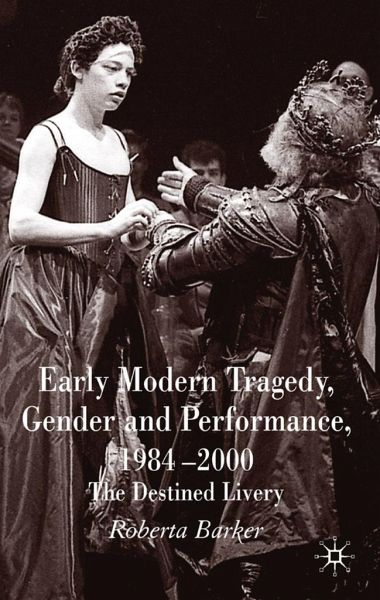
Early Modern Tragedy, Gender and Performance, 1984-2000
The Destined Livery

PAYBACK Punkte
19 °P sammeln!
Using nine recent theatrical and cinematic productions as case studies, it considers the productive contradictions and tensions that occur when contemporary actors perform the gender norms of previous cultures. It will be of interest to theatre practitioners as well as to students of early modern drama, of performance, and of gender studies.














